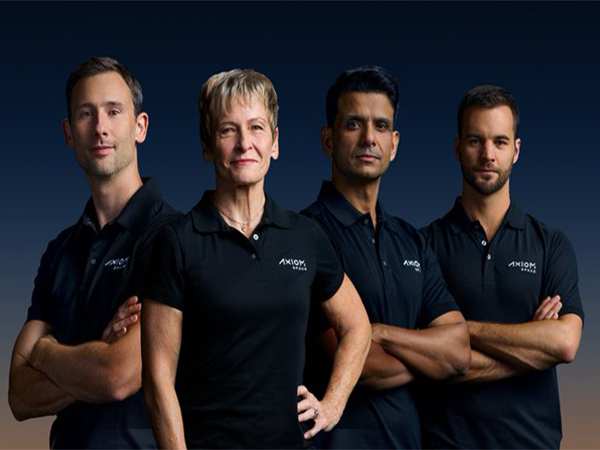Axiom Mission 4: Pioneering Private Spaceflight for India, Poland, and Hungary
Axiom Mission 4, in partnership with NASA, Axiom Space, and SpaceX, prepares to launch from Florida. It marks the return to human spaceflight for India, Poland, and Hungary, highlighting international collaboration and significant scientific research aboard the International Space Station.

- Country:
- United States
NASA, Axiom Space, and SpaceX are taking a historic step by launching the fourth private astronaut mission to the International Space Station (ISS) at 2:31 a.m. EDT on June 25. The mission, known as Axiom Mission 4, will lift off from Launch Complex 39A at NASA's Kennedy Space Center in Florida. The crew will journey to the ISS aboard a new SpaceX Dragon spacecraft, powered by the company's Falcon 9 rocket, with the docking scheduled for around 7 a.m. on June 26.
The initial launch date of June 22 was postponed to allow NASA ample time to evaluate station operations following repairs in the ISS's Zvezda service module. ISS emphasized the global significance of this mission, particularly for India, Poland, and Hungary, who will play key roles in this historic venture.
This mission, led by Axiom Space's Director of Human Spaceflight and former NASA astronaut Peggy Whitson, includes Indian astronaut Shubhanshu Shukla, serving as the pilot, along with mission specialists Slawosz Uznanski-Wisniewski from Poland and Tibor Kapu from Hungary. This mission marks the return to human spaceflight for these countries and underscores Axiom Space's efforts to redefine access to low-Earth orbit.
In addition to its historical significance, Ax-4 encompasses approximately 60 scientific studies across 31 nations. These activities represent a collaborative effort to advance microgravity research in LEO, highlighting contributions from the US, India, Poland, and Hungary, among others. This mission stands as a testament to international cooperation, with the potential to significantly impact national space programs.
(With inputs from agencies.)
ALSO READ
UK, Singapore, Hungary lead fintech innovation through regulatory sandboxes
Indian Students in Iran Plead for Evacuation Amid Rising Israeli Strikes
India and Cyprus Forge Stronger Economic Ties with Dual Stock Listings
Monsoon Showers Bring Relief to Heatwave-Hit Northern India
India and Canada: Renewed Optimism on the Global Stage at G7 Summit










